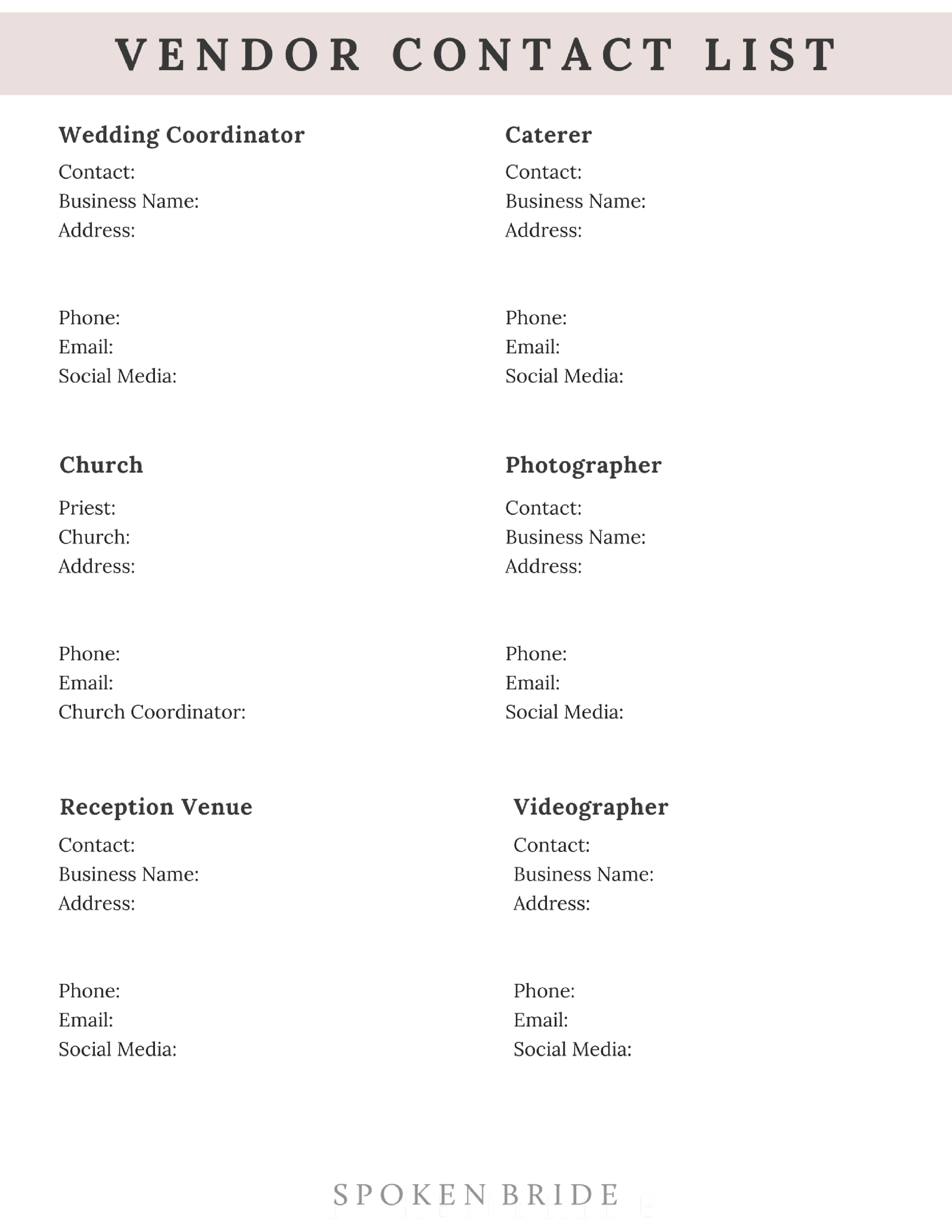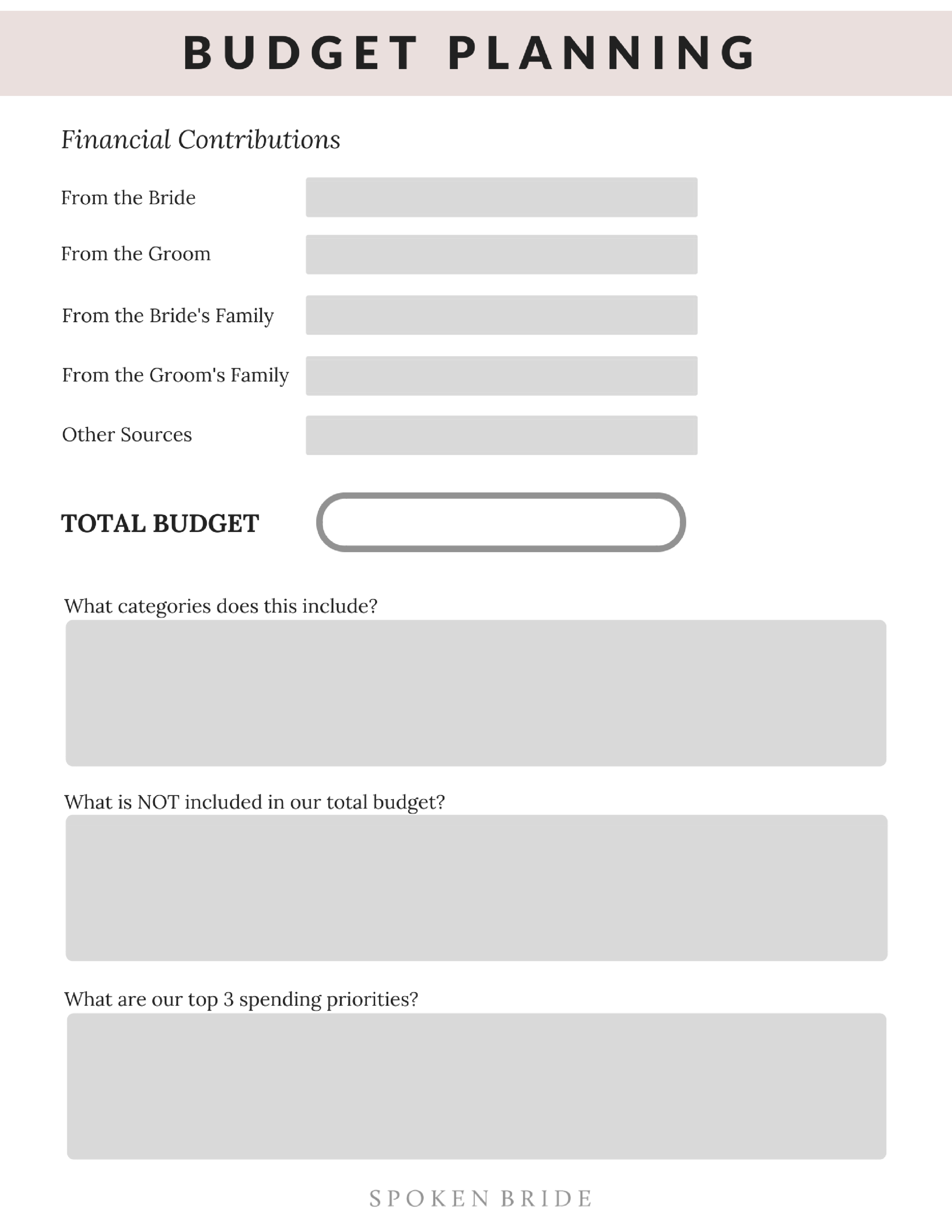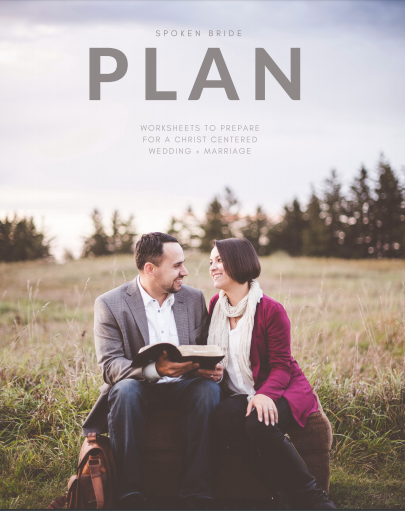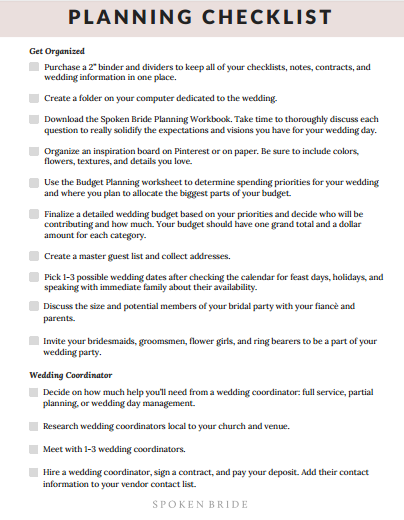As a wedding coordinator, I take wedding budgets very seriously. They represent a huge commitment of time and money from the bride, groom, and often both of their families. Sometimes it’s the largest event any of them have hosted!
It’s easy to overspend if you don’t take time at the very beginning of the planning process to set a reasonable budget everyone is comfortable with, and to constantly update it and make sure you're all on the same page.
As Christians, we are called to be good stewards of the gifts God has given us, including our finances. Luke's Gospel asks us, “Which of you wishing to construct a tower does not first sit down and calculate the cost to see if there is enough for its completion? Otherwise, after laying the foundation and finding himself unable to finish the work the onlookers should laugh at him and say, ‘This one began to build but did not have the resources to finish.'” (14:28-30)
The same principles apply to planning any kind of party. We start with our not-so-glamorous budget and offer it up to God. And from there, we can move on to making the fun decisions and indulging a little in the perks of being a bride.
I share the budgeting tips below with my clients and really, with anyone who wants to talk weddings with me:
Prioritize.
I’m going to say something I’ve never heard another wedding industry pro say: aside from your nuptial Mass and marriage license, everything else in this process is optional. Everything.
You don’t have to send out paper invitations, eat cake, wear a white dress, carry a bouquet, or even have a single photo taken to become man and wife. All those things are wonderful traditions that are fun to choose, but they are not what binds you to one another for life.
So here’s what you do: prioritize. Separately from each other, write down the top 3-5 wedding elements that are the most important to each of you, and the 3-5 that aren’t very important to you, i.e. categories in which you wouldn't mind spending less money or deferring to your beloved's choices.
Here’s a little sample:
Her High Priorities: Music for Mass, Wedding dress, color scheme for reception, Invitations, coordinator
His High Priorities: Readings for Mass, style of Tuxes for me and groomsmen, good food at reception, photographer/videographer, good Cake
Her Low Priorities: Music for Reception, Reception Bar, Limos
His Low Priorities: Transportation, Flowers, Bridesmaid dresses, invitations
As you talk and discuss these together, come up with your own unified list of priorities to focus on. Categories with higher priorities get booked first and generally have a larger amount of money spent on them. Categories with lower priorities can be done by friends and family, delegated to parents or family to decide on, or omitted entirely.
Leave a little wiggle room.
When planning a big event with lots of moving parts to it, things happen. A pair of shoes gets forgotten 100 miles away and you dash to the mall for another pair. You’re suddenly starving and make a Jamba Juice run for the bridal party between the ceremony and reception. You decide to go overtime with your reception vendors and add an extra hour to the party because everyone is having so much fun. Additional, unexpected situations arise, and it’s best to leave at least 5-10% of your budget open for these possibilities.
Accept.
Another shocking fact: no one gets everything they want. Even couples with a $100,000 budget still have to pick and choose what matters and make compromises to stay on budget. Yes, that might look like skipping a 10-minute firework show and choosing to have your guests wave sparklers at the end of the night instead. But ultimately, no couple gets every single element they want unless they have unlimited money. Learning to accept that compromise is a part of life, and sticking to your budget is excellent practice for marriage!
Thank those who have contributed to your day in any way.
Really take the time to thank your parents, grandparents, godparents, friends, and anyone who has contributed to your wedding financially or with the gift of their time. They are not obligated to give you your dream wedding, and chances are, they've made sacrifices to give you as much as possible. Sending a kind note, taking them out to dinner or on a fun day trip, or giving a gift at your rehearsal dinner are all beautiful ways of showing your appreciation.
Enjoy the fruits of your labor!
When the day you've been preparing for spiritually, mentally, emotionally, and physically finally comes, surrender it to God. Don't stress the details, and be intentional and present. Hire a day-of coordinator if you prefer, or designate a family member or friend be the point of contact for all your vendors so that you can just soak everything in. Your budget will still be there Monday morning after your wedding, and some expenses may not be finalized until then. If possible, it's nice to wait until after your honeymoon to wrap everything up.
My final piece of wedding budget is advice is to never, ever, ever, ever take out debt to throw a party. Do what you can with what you have--another great life lesson.
Now I want to hear from you! What have you and your groom prioritized as most important and least important for your wedding?
Download the Budgeting resources below:






















